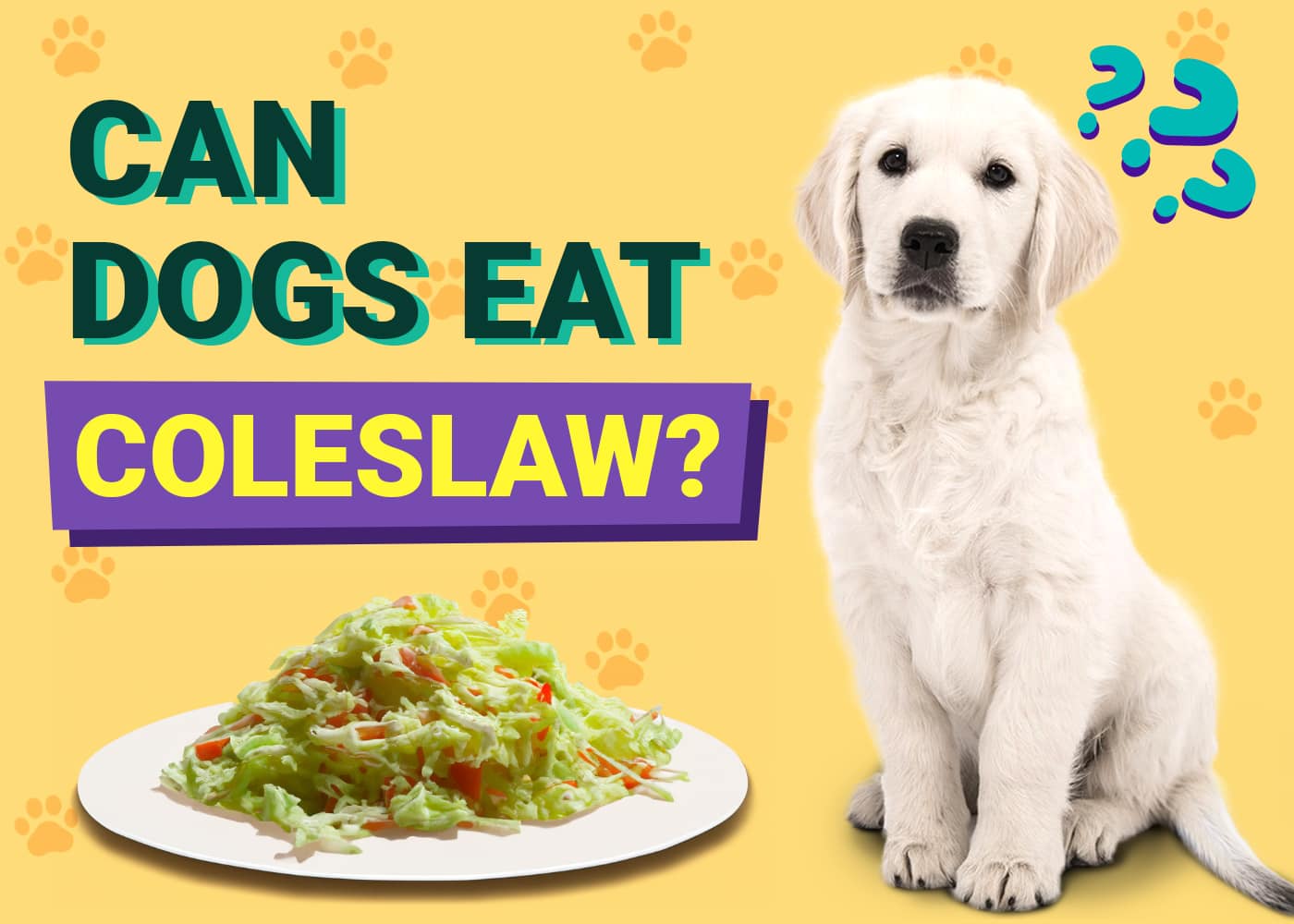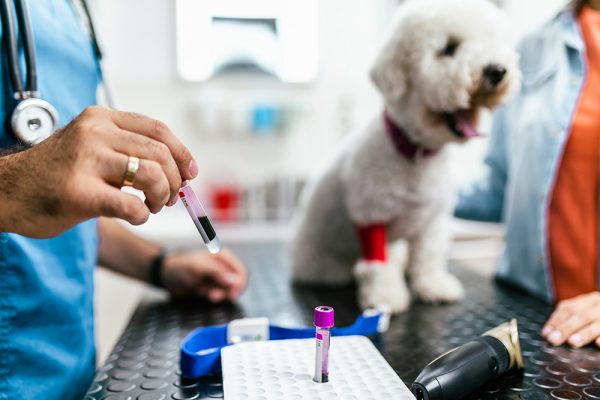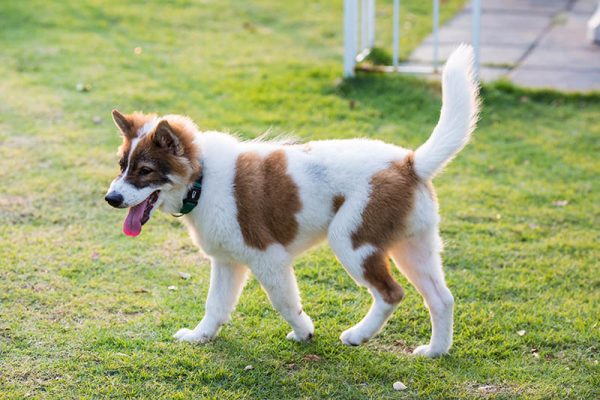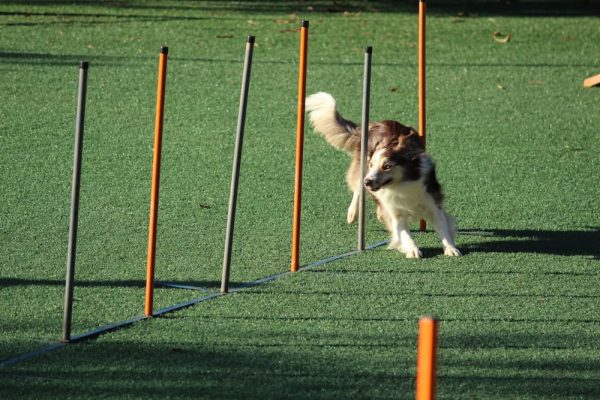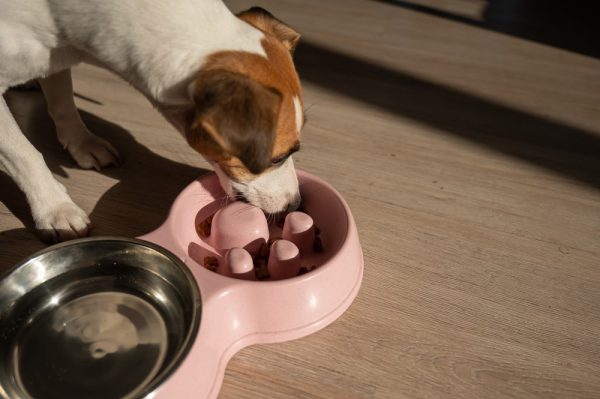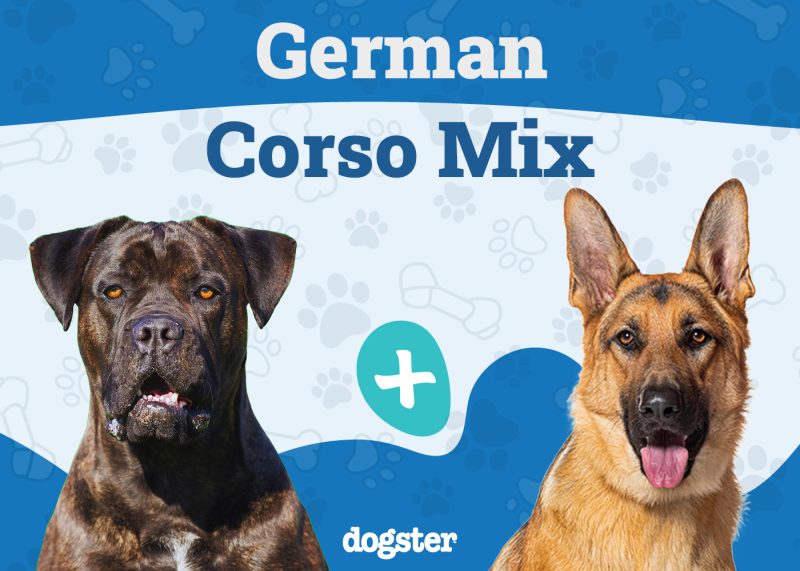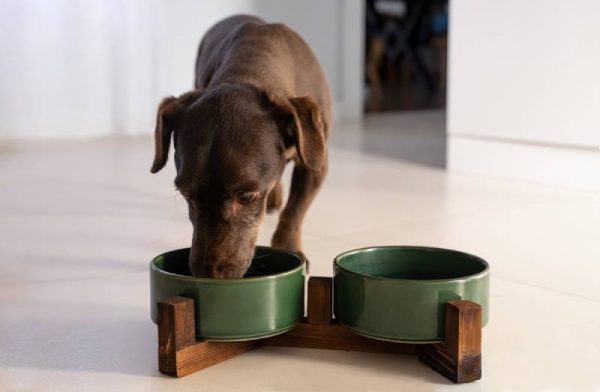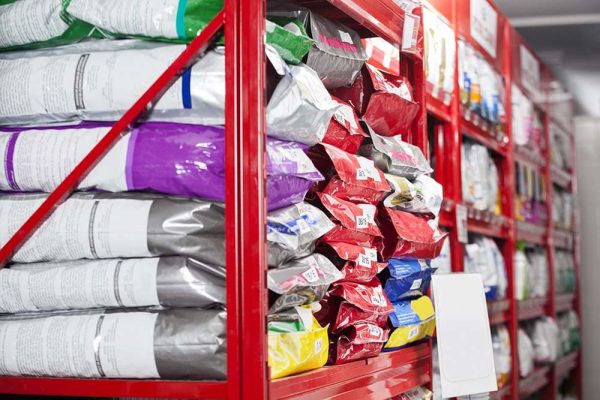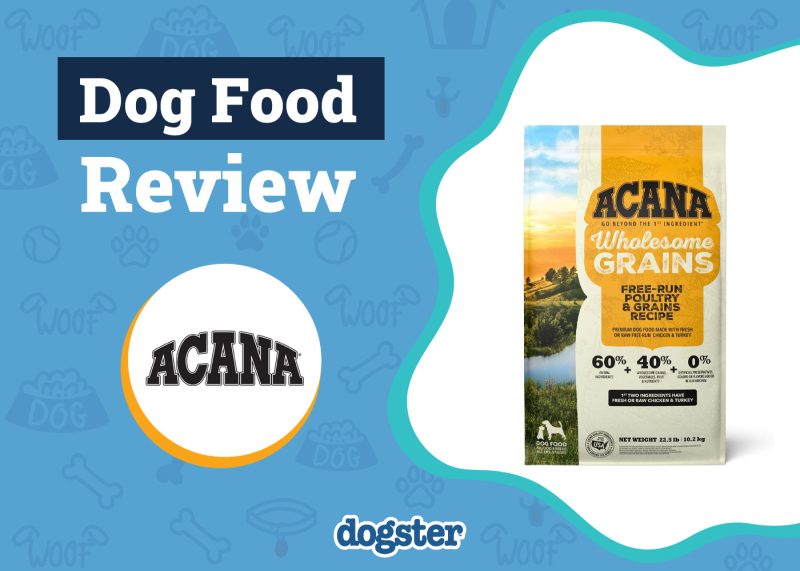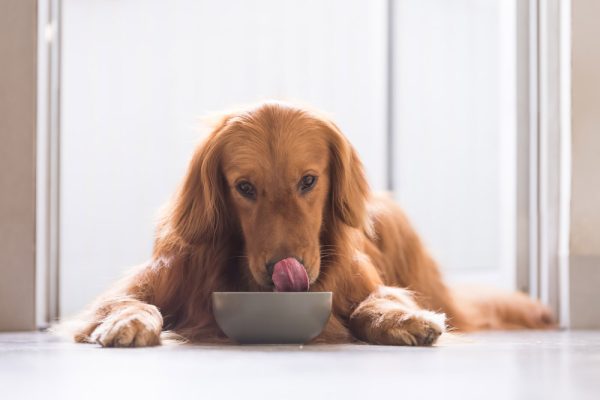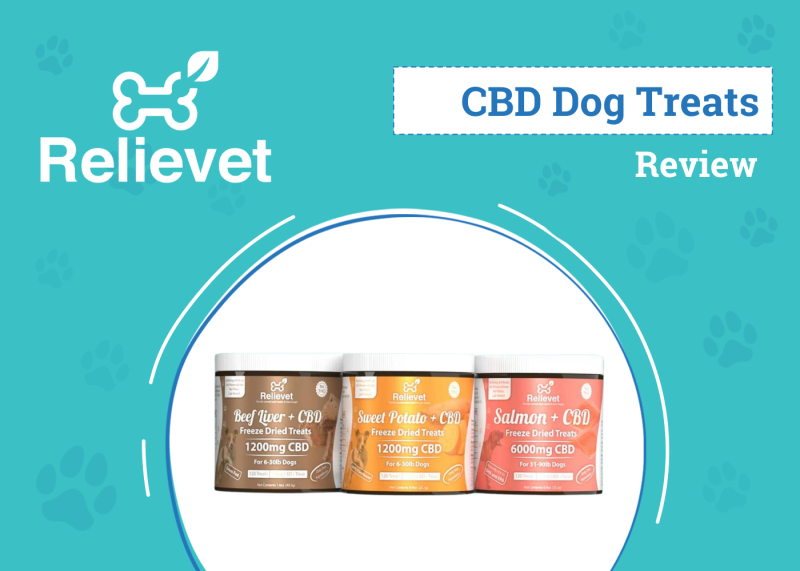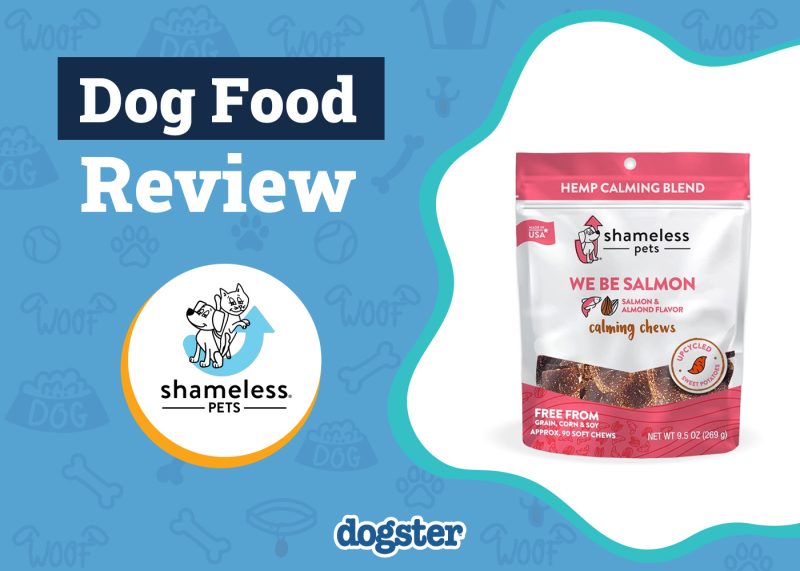In this article
View 2 More +Coleslaw is a tasty side dish that typically makes appearances at cookouts and BBQ restaurants. If your dog likes to hang around when you’re cooking or eating, then they may want a taste of the foods on your plate, including your creamy coleslaw. While coleslaw likely won’t seriously harm your beloved pet if they sneak a couple of licks, it certainly isn’t something you want to feed them on purpose.
Many of the ingredients in coleslaw are either harmful to dogs in larger amounts or can lead to stomach upset. Some potential ingredients, like onions, are actually toxic for dogs.

Can Dogs Eat Coleslaw?
The simple answer to this question is that you should not allow your dog to eat coleslaw. Why? There are actually multiple ingredients in coleslaw that can be problematic for your dog. Some ingredients are toxic, while others may lead to stomach upset or weight gain over time. There is even some concern about choking on some of the ingredients in coleslaw, depending on how they are prepared.
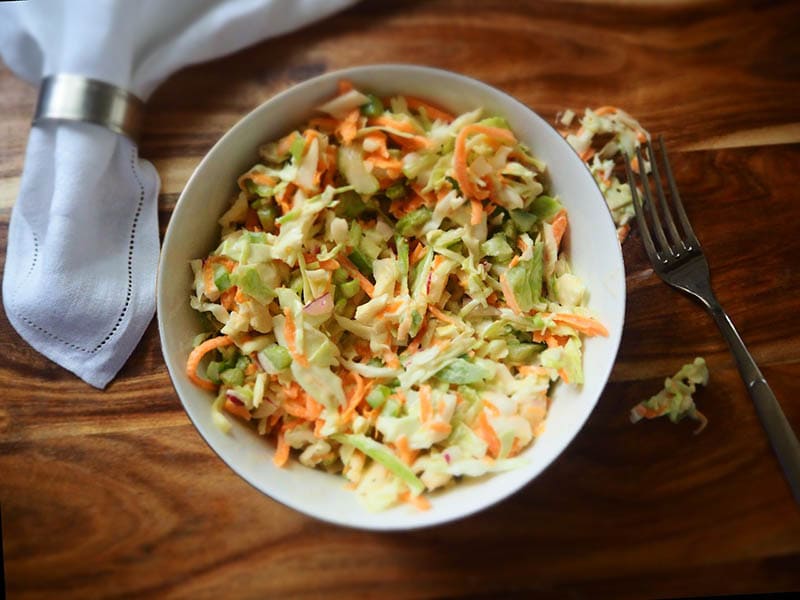
What Ingredients in Coleslaw Should Cause Concern?
1. Vinegar
While a small amount of vinegar is unlikely to cause problems for your dog, vinegar-based coleslaw often contains enough vinegar to create problems. Diarrhea and digestive upset can occur if vinegar is consumed in large enough quantities. For dogs with kidney disease, the acidity of vinegar can also cause issues due to the body’s reduced ability to process acidic foods.1
2. Salt
Some amount of salt is essential for dogs as part of their regular commercial food, and dogs generally tolerate variable amounts of salt in their diet quite well, as long as they have access to fresh water at all times. This means that salty coleslaw is very unlikely to be salty enough to cause salt poisoning in dogs, but other ingredients are more likely to make your dog ill. It’s generally still recommended to not give dogs human foods, especially ones with added ingredients, such as salt and other seasonings, including coleslaw.
3. Sugar
Sugar may be present in coleslaw in many forms, including granulated sugar, agave, and honey. In the short term, excessive or regular sugar consumption can lead to stomach upset. However, the amount present in coleslaw is unlikely to be high enough to lead to short-term issues. Usually, this may cause mild nausea, vomiting, diarrhea, or abdominal discomfort. If consumed over the long term, though, sugar can lead to obesity, which predisposes dogs to other health issues such as diabetes, breathing and heart issues, and joint problems.
4. Mayonnaise
Mayonnaise is a food that is very high in both fat and calories. While this can result in stomach upset, it can also potentially lead to pancreatitis in some dogs, although the exact amount of fat responsible for this remains unclear and requires further research. Still, pancreatitis is a serious medical condition. Over time, the extra fat and calories in mayonnaise can lead to weight gain, obesity, and other weight-related conditions. Mayonnaise may also have added ingredients that can cause problems for your dog, including raw eggs, vinegar, soybean oil, sugar, and salt.
5. Onion
Onions are toxic for dogs, so if your coleslaw contains onions or onion powder, it can be dangerous for your dog. Onions lead to the breakdown of red blood cells in a dog’s body, which results in dangerous anemia. This can lead to a variety of signs, including panting and heavy breathing, pale gums, lethargy, elevated heart rate, vomiting, weakness, diarrhea, red-colored urine, and lack of appetite. Certain breeds, such as the Japanese Akita and Shiba Inu, are at an increased risk of developing onion toxicity.
6. Garlic
Like onions, garlic is also toxic for dogs, even in powder form. Garlic can lead to lethargy, pale gums, fainting and collapse, elevated heart rate, shortness of breath, and yellowing of the eyes, skin, and mucus membranes. Garlic is in the same family of plants as onions, so garlic toxicity is very similar in symptomatology to onion toxicity.
7. Cabbage
While cabbage can be a healthy food, there are some issues associated with it. If roughly chopped into large enough pieces, cabbage can be a choking hazard, especially for small dogs and dogs prone to swallowing food whole. Cabbage can also lead to digestive problems, including gas, abdominal discomfort, and diarrhea. Finally, cabbage contains a compound called thiocyanate, which can lead to hypothyroidism, only if consumed in extremely large quantities on a regular basis.

What Should You Do if Your Dog Eats Coleslaw?
If your dog eats coleslaw, the first thing you should do is get a list of the ingredients. It’s important for you to know what’s in the coleslaw, especially if it contains toxic ingredients like onion and garlic. If there are any dangerous ingredients in the coleslaw, then you should reach out to a pet poison hotline or speak with the nearest veterinarian.
If your dog consumes coleslaw that doesn’t contain toxic ingredients, then there isn’t anything for you to do except keep a close eye on your dog. Watch for signs of a stomach upset, as some dogs may still require treatment if their vomiting and diarrhea persists for more than 12-24 hours, or if they become lethargic, weak, reduce their food consumption, or have any blood in the vomit or stool.
If you need to speak with a vet but can't get to one, head over to PangoVet. It's our online service where you can talk to a vet online and get the advice you need for your pet — all at an affordable price!

Conclusion
Coleslaw is not a good food option for dogs. It has multiple ingredients that are toxic or inappropriate for dogs, so it’s best to avoid it completely. There are multiple ingredients in coleslaw that are not an appropriate part of your dog’s diet, like mayonnaise and granulated sugar.
Sometimes, a dog may get into some coleslaw, so it’s important to find out what all the ingredients in the recipe are. Toxic ingredients likely will require veterinary intervention, so it’s important to reach out to your vet or a pet poison hotline for guidance.
See also:
- Can Dogs Eat Clover? Vet-Reviewed Facts & FAQ
- Can Dogs Eat Watercress? Vet Reviewed Facts & Safety Guide
Featured Image Credit: Anna Hoychuk, Shutterstock
